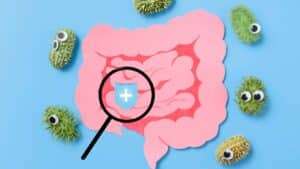Nutrition for Stomach Cancer Patients: A Comprehensive Guide
The stomach is a sac-like organ that’s an important part of the digestive system.
Stomach cancers tend to develop slowly over many years. Before a true cancer develops, pre-cancerous changes often occur in the stomach’s inner lining (mucosa). These early changes rarely cause symptoms, so they often go undetected.
Table of Contents
ToggleCancers starting in different sections of the stomach can cause different symptoms and tend to have different outcomes. The cancer’s location can also affect treatment options. For example, cancers that start at or grow into the GE junction are usually staged and treated like cancers of the oesophagus.
Coping with stomach cancer is a formidable challenge, and its impact extends far beyond medical treatments. Stomach cancer patients often encounter significant nutritional hurdles that can profoundly affect their health and well-being. Understanding these challenges and implementing the right dietary strategies is paramount in supporting their journey towards recovery. This comprehensive guide will explore the various facets of Nutrition for Stomach Cancer Patients.
Understanding Stomach Cancer
Before diving into the intricacies of Nutrition for Stomach Cancer Patients, it’s essential to comprehend the basics of stomach cancer. This disease takes root in the stomach, a sac-like organ in the digestive system. Stomach cancers typically develop slowly over many years, beginning with pre-cancerous changes in the stomach’s inner lining, which often go unnoticed due to their lack of symptoms. Furthermore, where the cancer originates within the stomach significantly influences its symptoms, treatment options, and overall prognosis.
The Impact of Cancer on Nutrition
Stomach cancer profoundly impacts a patient’s ability to eat and digest food. The causes of these nutritional challenges are diverse, encompassing the removal or damage to critical components of the stomach’s digestive process, such as glands, specialized cells, nerves, and muscular rings controlling food entry and exit. In addition to these anatomical changes, side effects of treatments, loss of appetite directly caused by the cancer, and impaired stomach emptying further complicate matters.
It is common for people with stomach cancer to have problems eating and digesting food. These problems are caused by:
- The removal of all or part of the stomach
- The removal of or damage to glands, specialized cells and nerves of the stomach that affect the digestion of food
- The removal of or damage to the rings of muscle that control food coming into the stomach (called the lower oesophagal sphincter) and leaving the stomach (called the pyloric sphincter)
- Side effects of chemotherapy or other treatments
- A loss of appetite caused by the cancer itself
- The stomach is not emptying properly, making you feel full longer than normal.
Some common issues faced by patients are
Nutritional Challenges
To address the nutritional concerns stomach cancer patients face, we need to acknowledge the prevalent issues they encounter. Weight loss is a common and significant concern, stemming from a diminished appetite and post-surgery eating difficulties. The extent of weight loss often relates to the portion of the stomach removed during surgery. Patients who have undergone stomach surgery may struggle to consume substantial meals and can feel full even after eating small portions.
Nutrition for Stomach Cancer Patients
Stomach cancer patients must have clear Nutrition for Stomach Cancer Patients goals during and after treatment. Nutrition for Stomach Cancer Patients goals aim to address their specific needs and challenges effectively. The primary objectives include maintaining a healthy weight, managing nutritional deficiencies, and supporting overall well-being.
Weight loss: People with stomach cancer often lose their appetite and may not feel like eating. After stomach cancer surgery, they may be unable to eat large meals and feel full after eating small amounts of food. This is usually related to how much of the stomach is removed. The remaining stomach or small intestine may not digest food properly or absorb fats and nutrients. This depends on the type of surgery and how much of the stomach is removed.
If weight loss is an issue, the following can be tried:
- Make sure to eat all meals. Try to eat regularly, even if it is only a few bites.
- Make every mouthful count by choosing foods and drinks high in protein and calories. You can add milk, butter, and ghee to every meal to make them calorie-rich and high in proteins.
- When you don’t want to or can’t eat solid foods, drink high-calorie, high-protein beverages (like shakes, smoothies or commercial liquid supplements). Also, take high-calorie, high-protein drinks between meals in small amounts.
- Keep a variety of nutritious foods high in protein and calories, as well as quick and easy snacks, on hand so they are ready to eat when you are. Examples include milk or milkshakes, ice cream, cheese, peanut butter, eggs, nuts, and yogurt.
Iron deficiency: It is a frequent complication after surgery, and deficiencies in iron, vitamin B12, or folate have been reported after gastric surgery. Anaemia develops in 50% of patients who undergo total stomach removal. Poor Nutrition for Stomach Cancer Patients status and decreased dietary iron intake may lead to iron depletion after gastric surgery.
Vitamin B12 deficiency: Vitamin B12 deficiency can develop as early as one year after surgery for stomach cancer. Vitamin B12 is important in making red blood cells and keeping the nervous and digestive systems healthy. Low vitamin B12 levels can lead to anaemia. Cells in the stomach lining (called parietal cells) make an intrinsic factor which helps the body absorb vitamin B12. Anaemia caused by low vitamin B12 levels is called pernicious anaemia. People who have had surgery for stomach cancer are often given vitamin B12 (by injection or oral supplement) to help prevent anaemia.
Calcium Deficiency: Calcium absorption becomes very poor after stomach surgery. can be from multiple reasons like poor calcium intake from diet and stomach emptying itself quickly, leading to poor absorption. Low calcium levels can lead to osteoporosis.
Nutrition for Stomach Cancer Patients, supplementation of all vitamins and minerals is required for well-being and weight gain.
Eating protein-rich foods and supplements helps with weight gain. Consulting with a dietician and your doctor can ensure that you can meet all your nutritional demands and enjoy good health.




